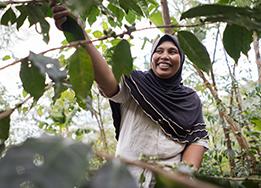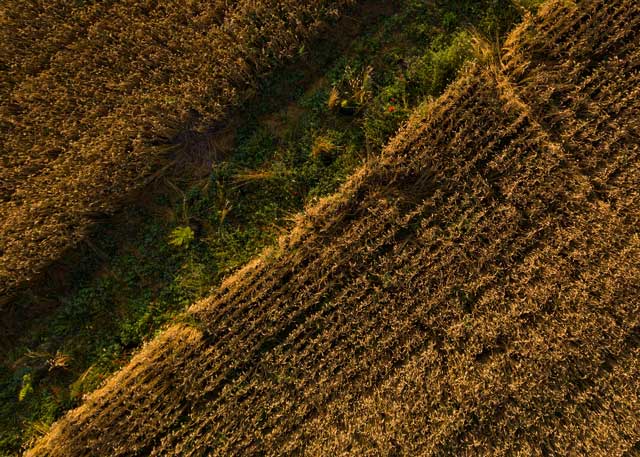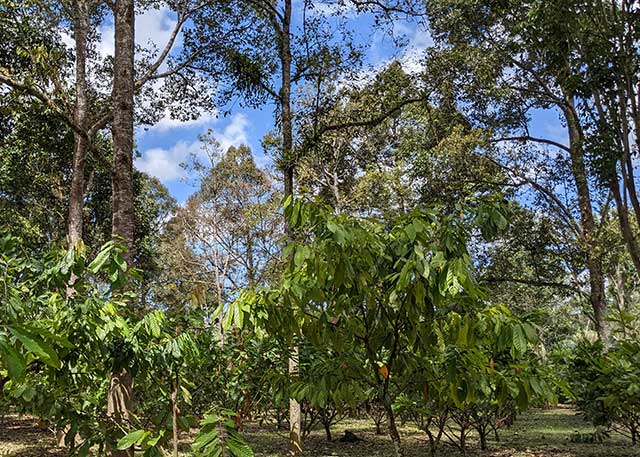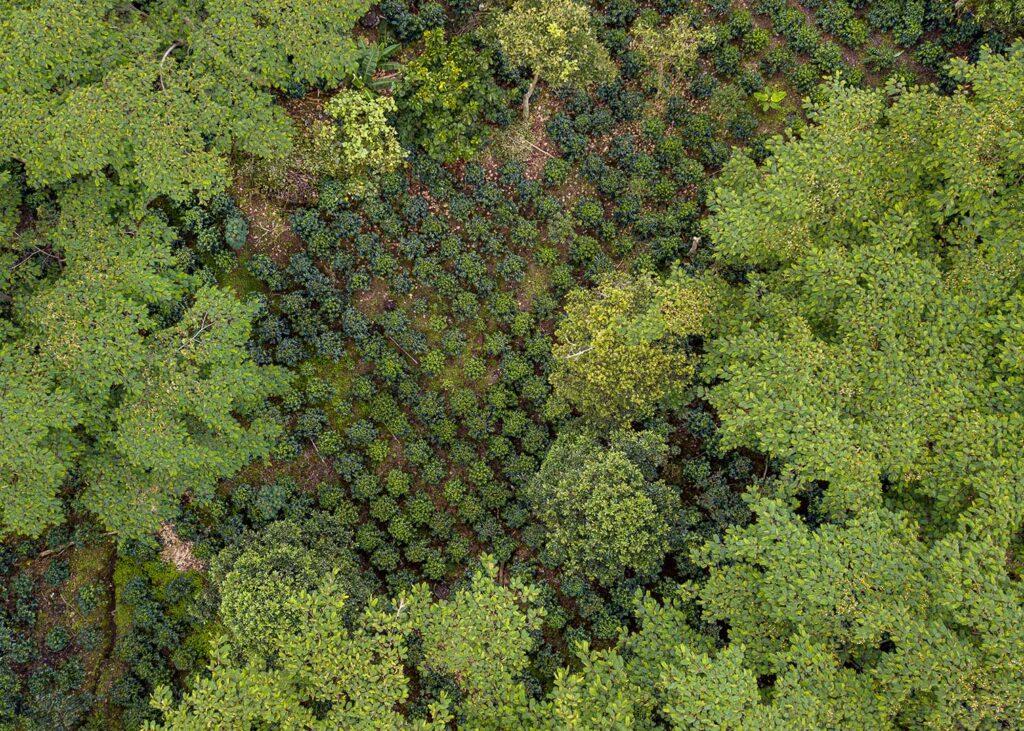Complementary community activities are essential components of agroforestry projects in Côte d’Ivoire, to ensure the permanence of trees planted in cocoa fields and improve the living conditions of producers. Let’s dig into the four main activities that PUR has implemented.
News & Stories
Cocoa Agroforestry and Community Benefit Activities
PUR develops community-run agroforestry projects in Côte d'Ivoire to ensure long-term impact and fight against deforestation.
Complementary activities help us implement long-term agroforestry projects
Côte d’Ivoire is the world’s leading cocoa-producing country, distributing around 2 million tons per year.
Yet agroforestry projects in Côte d’Ivoire are implemented in a challenging agricultural context, where cocoa producers struggle to obtain the minimum living income. They currently earn, on average, only 54 cents per day — and the instability of the cocoa market contributes to their precariousness. To improve their income, producers often turn to deforestation to increase their area for commercial cocoa production. As a result, around 150,000 hectares of primary forest disappear each year due to the expansion of cocoa fields.
To prevent this destruction, we are supporting cocoa producers in the development of agroforestry projects in their plots — helping to increase soil health and improve living conditions, while averting future deforestation. To ensure the long-term success of our agroforestry projects, we also develop complementary community activities beyond planting trees. It is a practical approach for ensuring that producers do not return to deforestation to increase their earnings, despite the positive potential of agroforestry practices.
Prior to the development of these complementary activities, we carry out feasibility studies within local communities to identify suitable initiatives to develop in addition to agroforestry.
“Before setting up an agroforestry project with cooperatives, we carry out a thorough feasibility study.” —Constant Adingra, Project Manager in Côte d’Ivoire
1. Beekeeping
In some communities, we are developing beekeeping projects that aim to provide additional income to cocoa producers via the sale of honey on the local market.
To get started, farmers are provided with proper training in beekeeping from technical experts, who supply them with the materials necessary for ongoing operations. We then help them understand the local honey market to commercialize their products.
2. Improved cookstoves
In rural areas of Côte d’Ivoire, conventional stoves consume excessive amounts of wood, emitting lots of smoke and increasing pressure on limited firewood resources.
This is why during the implementation of our agroforestry projects, we also develop local initiatives to construct improved “clean” cookstoves — aiming to reduce the consumption of firewood to prevent deforestation or the early cutting of agroforestry trees. These new stoves also generate less smoke, creating a healthier household environment while helping to save firewood costs.
This initiative is primarily led by women, who are trained to build cookstoves using local raw materials. The objective is for women to gain valuable new skills, in making their own improved cookstoves and developing business opportunities within their community.
“Women are important when it comes to improving the living conditions of producers. There is evidence that women in rural areas directly benefit the household. A woman who is trained today is able to develop additional income and improve the living conditions of the household” —Constant Adingra, Project Manager in Côte d’Ivoire
3. Support women entrepreneurship
We are currently developing the “Beyond Trees” project with Empow’her to encourage women to become entrepreneurs. They are trained in several different business skills, such as basic accounting and how to access new markets. This initiative is divided into four phases: an ideation phase, a training phase, a competition phase, and project selection.
4. Developing skills that empower agricultural communities through the establishment of local tree nurseries
Finally, the development of local tree nurseries creates employment opportunities, and helps communities take ownership of this important part of our agroforestry projects. Women play a major role in the design, installation, and maintenance of these nurseries, enabling them to generate additional income.
Farmers are at the heart of all PUR’s projects
Each of these complementary activities around our agroforestry projects — which we develop directly with agricultural communities, producers, and cooperatives — aims at improving the rural living conditions of smallholder farmers in Côte d’Ivoire.
It is essential that our projects support sustainable living conditions for producers — as the involvement of local communities is key for the permanence of our agroforestry projects, and one of the main differentiating factors of PUR’s model.
Related Posts
PUR develops community-run agroforestry projects in Côte d’Ivoire to ensure long-term impact and fight against deforestation.

Community Benefit Activities

Key Global Trends for Nature-Based Goals and Action in 2023

Cocoa Life Agroforestry in Southeast Sulawesi
